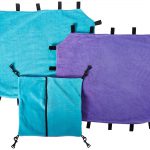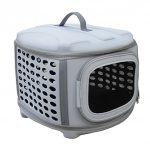As an Affiliate, I may earn from qualified purchases.
A Guide to Housing and Care
When it comes to providing a safe and comfortable home for your ferret, a well-planned habitat is essential. In this guide, we’ll discuss ferret habitats, from suitable cage sizes to litter training and essential accessories.
Choosing the Right Cage: The primary habitat for your ferret is a cage, where they will spend most of their time when not supervised. Here are some considerations for selecting an appropriate cage:
- Size Matters: A single ferret requires a cage that is no smaller than 30 inches in width, 18 inches in depth, and 18 inches in height. Providing adequate space ensures your ferret’s comfort and well-being.
- Cage Essentials: Inside the cage, you should have the following essentials:
Supervised Playtime: While a cage is essential for safety when you can’t supervise your ferret, it’s crucial to allow them time outside the cage for exercise and exploration. However, free roam of the house should only be permitted when you are supervising your ferret to ensure their safety.
Ferrets often adapt their activity schedule to match yours, and they sleep approximately 17 to 20 hours a day. Thus, a spacious cage isn’t necessary for their comfort, as it primarily serves as their “bedroom.”
Litter Training: Many ferrets can be litter trained, although accidents may happen. Here are some tips on litter training:
- Provide a litter box within the cage.
- Choose the right litter: We recommend wood pellets designed for stoves. They are cost-effective and safe. Avoid clumping sand litter, which can cause respiratory issues, or clay litter, which may harm delicate foot pads.
Additional Accessories: Enhance your ferret’s environment with these recommended items:
- Ferret Harness: If you’d like to take your ferret for a walk, invest in a secure harness. Brands like Premier 5 n 1 or Marshall Farms are known for their reliability.
- Carrier: A reliable carrier is essential for transporting your ferret. Ensure it’s escape-proof, as ferrets are clever escape artists.
In conclusion, creating an ideal habitat for your ferret involves selecting an appropriately sized cage, providing essential accessories, and offering supervised playtime outside the cage. Proper litter training and the right accessories will contribute to your ferret’s health and happiness.









Comments are closed, but trackbacks and pingbacks are open.